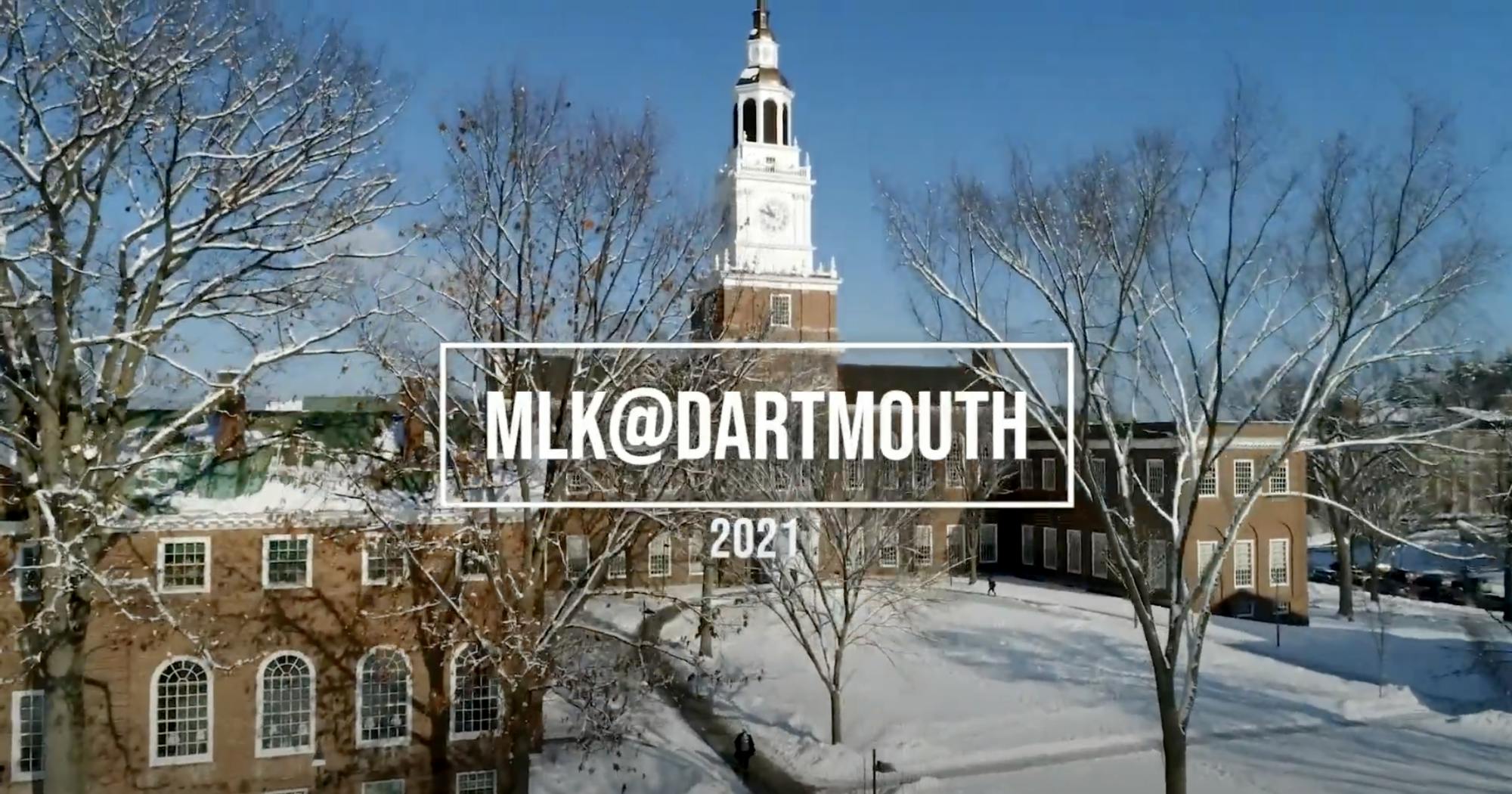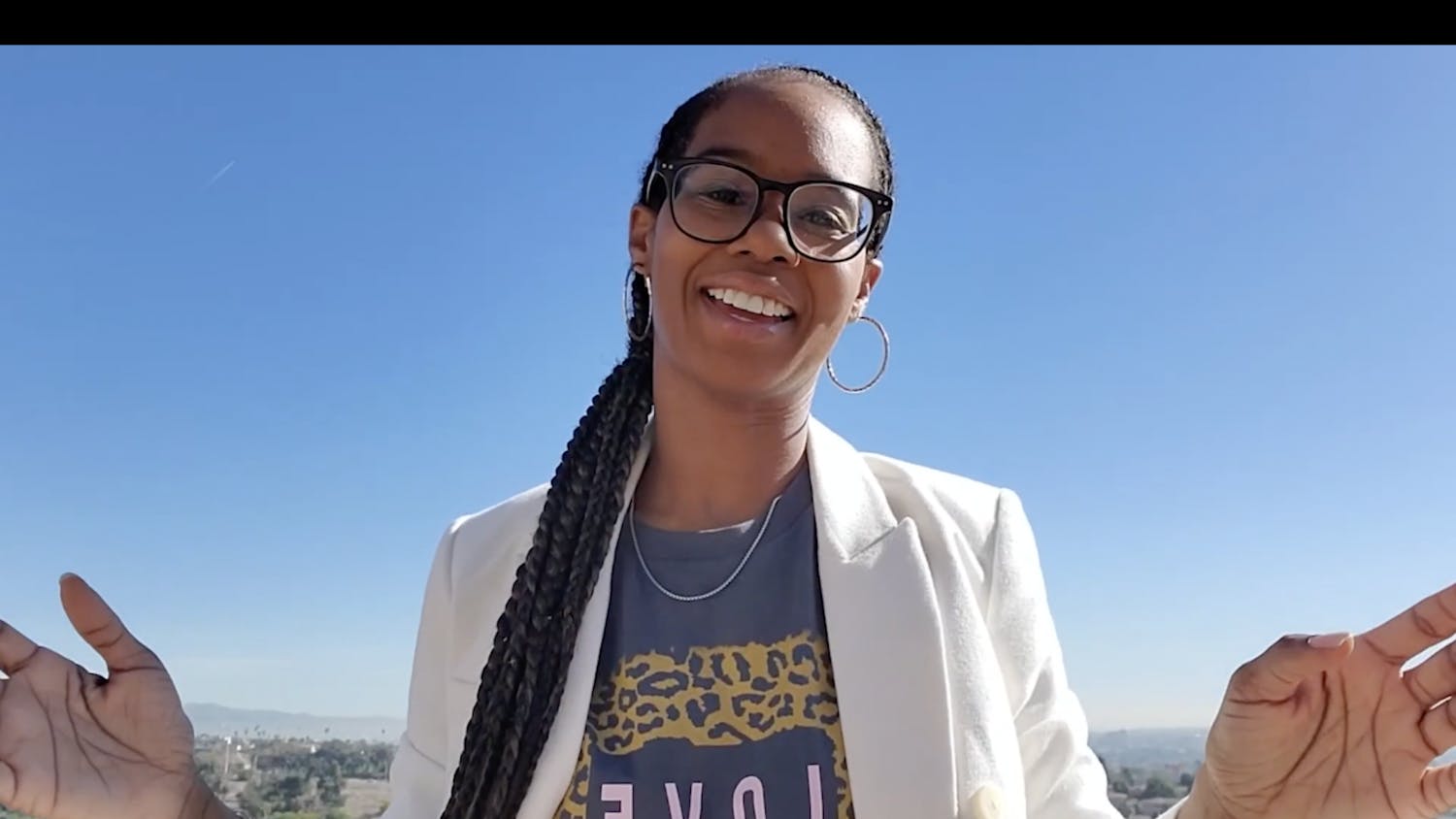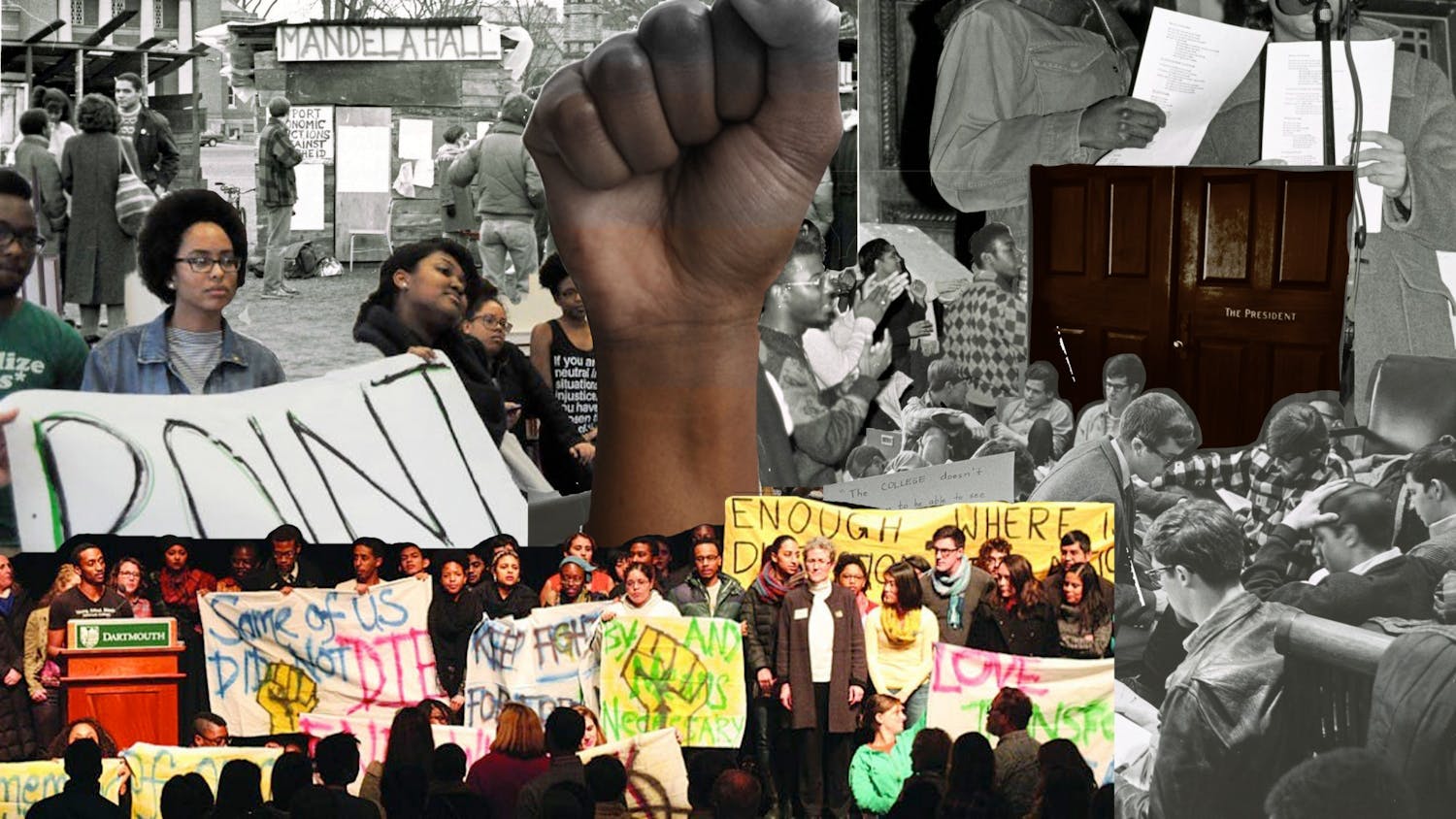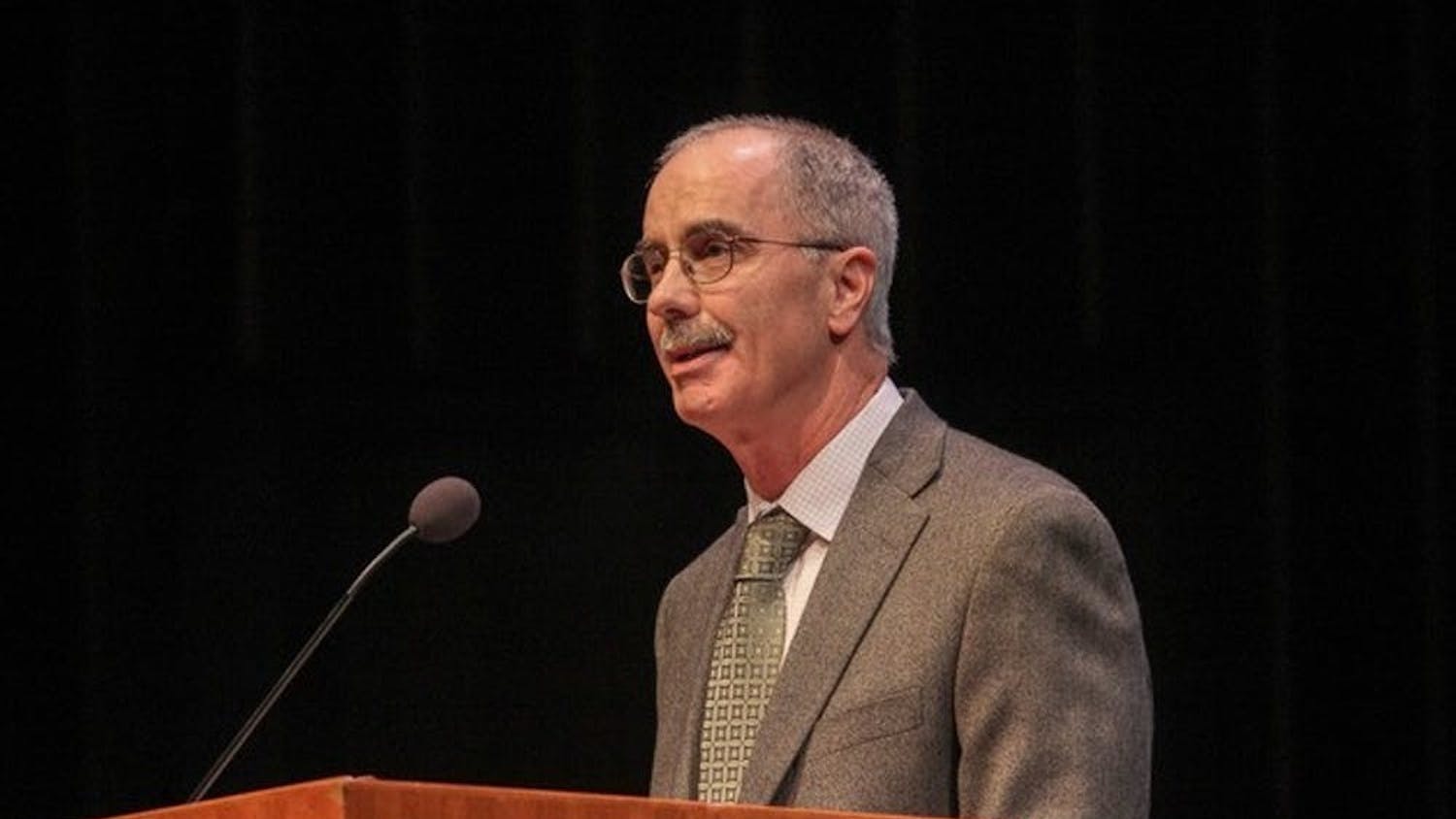Each year, Dartmouth puts on a celebration for Martin Luther King Jr. Day, hosting programs that relate social and racial justice to work done at the College. After a year that laid bare racial inequities in American society, this week’s events took on a renewed sense of importance.
Nationally, the summer of 2020 saw criticism of anti-Black racism come to the fore regarding education, police brutality and many other aspects of American life. The recent insurrection at the Capitol reminded many Americans of the two different worlds within this country: one in which non-violent Black Lives Matter protesters holding hands are tear gassed, and another in which white supremacists smearing excrement on walls face underwhelming police forces inside the Capitol.
This year, Dartmouth’s theme for MLK Day was “Hope and Action.” Sophia Brelvi, acting director of programming for the Office of Institutional Diversity and Equity, said that the theme was chosen because many responses to Black Lives Matter did not seem to address structural racism or change material conditions for people affected.
“[These responses] seem to be more performative or more superficial, like, ‘We’re renaming the street Black Lives Matter.’ Or, ‘We're going to create this racial equity task force for the city or the town or the state.’ It seems to be a lot of good things, but not that necessary change,” Brelvi said.
By focusing on a combination of hope and action, IDE hopes to tie together themes like resilience and community from the past year.
“What we wanted to focus on for the programming and the theme is that there are times when this work isn't easy,” Brelvi said. “This calling out of these inequities and trying to enact change isn't something that's going to be quick.”
According to Brelvi, this year’s theme is in part inspired by a quote from King: “We must accept finite disappointment but never lose infinite hope.”
For many, King’s words have never felt more relevant than they do today. Shawn O’Leary, director of the Office of Diversity, Inclusion and Community Engagement at the Geisel School of Medicine, said that he learns more about King at the start of each Geisel MLK Day committee meeting.
“Before each meeting, each student takes a turn reading the research and finds a quote of interest to them, and they read it to the committee,” O’Leary said. “You begin to realize how incredibly well spoken MLK is. The things he said 40 to 50 years ago were remarkable.”
In a video project created by Isaiah Diaz-Mays, diversity and communications fellow at the Guarini Institute of Graduate and Advanced Studies, 10 undergraduate and graduate students read excerpts of King’s work and spoke about his legacy. This is an inaugural video, and Diaz-Mays intends for the video project to recur every year.
Explaining the significance of the project, Diaz-Mays asked, “How can the College, how can other people hear how we feel, what we think, and [what] one of the most, if not the most, important person in this fight in America — what he means to us?”
Diaz-Mays emphasized that celebrations of King should not be bound to one day or even one month.
“[In the video], we didn't speak about the day, we spoke about [King],” Diaz-Mays said. “Because his lessons, not only were they everlasting, but they're implemented in what we do each and every single day. ... This isn't one day for us. This is every day, this is our lives. We want to make sure that these conversations last all year round.”
To maintain the momentum, Diaz-Mays has planned several other events to honor King, each of which will take place after MLK Day. For example, one event will take place in April.
“The reason why I didn't plan for it this month, or next month for Black History Month, was because [King] wrote his letter from a Birmingham jail in April,” Diaz-Mays explained.
Activism is central to the legacy of King, and many students also found themselves on the front lines as activists during 2020. Rabbi Daveen Litwin, dean and chaplain of the Tucker Center, worked with students and faculty across departments to focus this MLK Day’s programming in order to reflect current student needs.
“What do we need this to be this year — this difficult, complex, painful year that it's been on so many levels? Students talked about the connection between art and activism and spirituality. For a lot of students, their spirituality is expressed in social justice work, in service, in activism,” Litwin said.
Art has always been a way to express dissent, and many of this week’s events highlight the power of art. As Diaz-Mays explained, “Black art is the driving force in speaking up, or when it comes to symbolizing an expression and expressing how we feel.” The intersection of art, justice and activism has felt especially important this year.
“If you think about, for example, the posters, the people, the signs, the banners that people carried at protests, or you think about the Confederate statues that were art, that have been pulled down — artists have taken that art and recreated it into something else,” Litwin said.
At the Tucker Center’s Jan. 24 MLK Multifaith Celebration, keynote speaker Tricia Rose will discuss “artivism,” the practice of using art for activism. The Dartmouth Gospel Choir will also perform over Zoom on Jan. 24.
While art is often used to publicly challenge the status quo, internal resolve and grounding oneself on a personal level are important in activist work as well. For King, religion provided an important source of strength.
“While Reverend King stands for civil rights and social justice, he's Reverend Dr. King. His work was sustained, it was inspired, it was grounded and lifted by his faith,” Litwin said. “So the work that Tucker does is to include that part of the conversation, not only in terms of the historical understanding of ‘who was Reverend Dr. King,’ but [of] the connection to the spirit in the work of social justice.”
As part of the Tucker Center’s MLK Day celebration, several students read a quote from their religious text of choice as it relates to justice. Ari Garnick ’24 chose a quote from the Talmud: “Whoever destroys a soul, it is considered as if they destroyed an entire world, and whoever saves a life, it is considered as if they saved an entire world.”
“I chose that because I found it spoke to the theme: the whole idea is that people have a really big impact,” Garnick said. “Even little actions can really matter and affect people, for better or for worse. It's very easy to slip into the mindset of if everybody's against you, what are you going to do? How are you going to change that? The reality is, sometimes you can, and that's the hope.”
As 2020 showed us, it is no longer acceptable — socially, politically or nationally — to ignore the deep-seated injustices that plague our country. At Dartmouth, change is happening. More students and faculty are seeking diversity programming from IDE. This year, Brelvi said that there has been a 400% increase in requests for workshops, facilitations and curricula from faculty and students.
While Dartmouth students tend to feel like we live in a “bubble,” our insulation from the wider world makes it imperative that we embrace diversity and difference. Members of the community are looking to educate and inform themselves on how to create more just environments. Embodying King’s message of unity is a good place to start, on MLK Day and every day.




